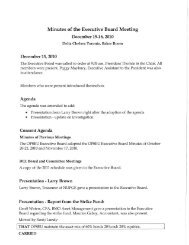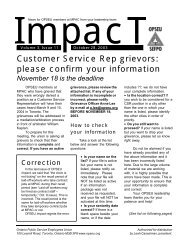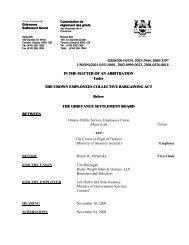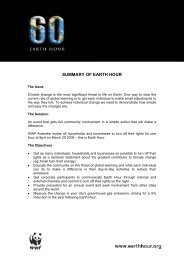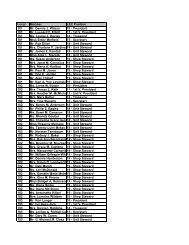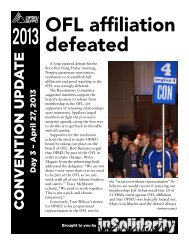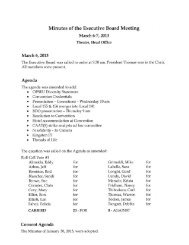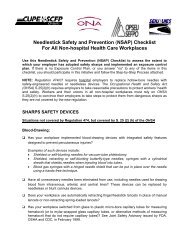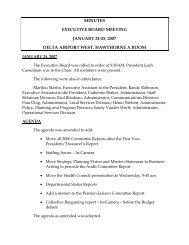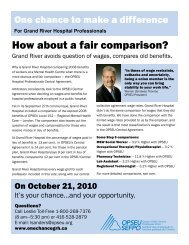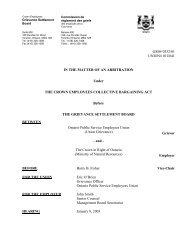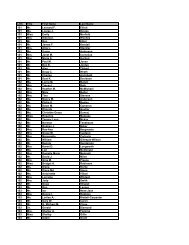grievance form - OPSEU
grievance form - OPSEU
grievance form - OPSEU
You also want an ePaper? Increase the reach of your titles
YUMPU automatically turns print PDFs into web optimized ePapers that Google loves.
EVALUATING A POSITION<br />
USING THE CAAT JOB EVALUATION MANUAL<br />
How to Use the Manual<br />
The steps outlined below must be followed in order to evaluate a position:<br />
1. Review the PDF in its entirety to gain an understanding of the position as a whole<br />
and of each factor used to describe the position.<br />
2. Compare the factor level definitions to the description in the PDF that has been<br />
written for that specific factor.<br />
3. Read the first factor level definition in its entirety. Continue to the next level<br />
until you find a factor definition that appears to capture the elements in the PDF. It is<br />
good practice to then read the next higher level and assess whether it also captures the<br />
in<strong>form</strong>ation in the PDF. If the previous level appears to be the "best fit", then that is the<br />
level that should be selected. Do not select a factor definition based on a single word or<br />
phrase. The entire definition needs to be assessed to ensure that it appropriately fits<br />
the description contained within the PDF.<br />
4.a. It is important to determine whether the example provided in the PDF reflects a<br />
core or significant skill, responsibility or activity. Also a determination must be made<br />
whether the skill, responsibility or activity is "regular & recurring" or "occasional".<br />
"Regular & recurring" may not be readily identified as a quantitative amount of time.<br />
If a specific task occurs daily or weekly, it is easily identifiable as "regular & recurring".<br />
However, a specific task that occurs once or twice a year, every year, and takes up<br />
about 25% of the work year should also be recognized as "regular & recurring". Any<br />
task or responsibility that is an integral part of the position's work and is expected or<br />
consistently relied on should be considered "regular & recurring".<br />
The term "occasional" can be considered in a few different time frames. It can be<br />
defined as once or twice a month or three or four times per year. It is important to<br />
remember that this term is to be considered when identifying significant skills or<br />
responsibilities associated with activities that occur for a short period of time, on a few<br />
occasions or sporadically throughout the year.<br />
22



